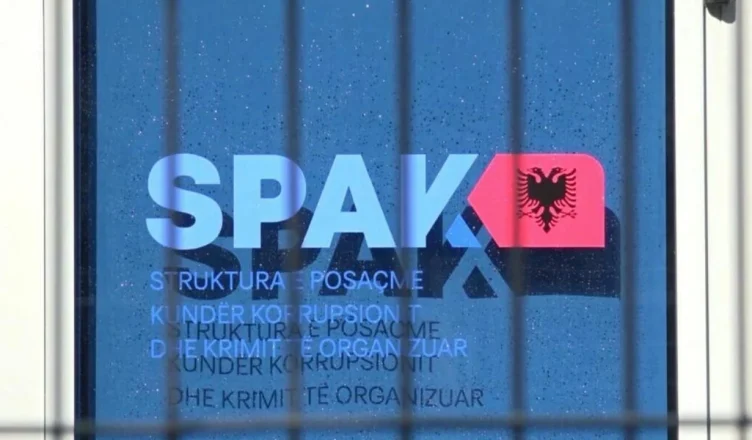SPAK hits alleged international cocaine network: 16 suspects, raids in four cities

Albania’s Special Prosecution against Corruption and Organized Crime (SPAK) struck another alleged international drug-trafficking group, seeking 16 suspects under Special Court warrants. The operation spanned Tirana, Durrës, Elbasan and Lushnjë. Some security measures were delivered in prison because several suspects are already detained in other cases.
Why is this important: According to SPAK’s official notice, the Elbasan-based group trafficked 28 tons of cocaine to Europe in two separate episodes, 17 tons of which were seized. Prosecutors Vladimir Mara and Altin Dumani describe the organization as among the most powerful, with the ability to influence cocaine prices in European markets.
Context: Of the 16 measures, 14 are “arrest in prison” and two are “obligation to appear.” Measures have been executed for 10 people, while six remain at large. Home and site searches seized cash totaling over €111,800, $4,000 and 880,000 lek.
SPAK stated:
“This criminal organization can be considered one of the most powerful Albanian organizations in the international trafficking of cocaine. It had the capacity to influence directly the price of cocaine in European markets and to manage large quantities of the narcotic substance over short periods of time. The high financial strength of this organization, its very high level of structuring and organization, as well as the ability to recover the losses that came from seizures distinguish it from other criminal groups investigated by SPAK.”
What else: The organization procured cocaine directly from producers and staged it for shipment in Paraguay. Two leaders—brothers from Elbasan—were based in Paraguay. The narcotics were hidden in sophisticated ways inside soap boxes, paint canisters and construction materials, masked with trademarks such as “Fox” or marked with distinctive signs like “Puma” or an “eye with lightning.” Loads moved in sea containers from South American ports to major European gateways, primarily Antwerp (Belgium) and Hamburg (Germany), then flowed through EU drug-market distribution networks.
Money laundering methods: Investigators say the group built a highly sophisticated financial mechanism to circulate and conceal criminal proceeds. One key method was the physical transport of cash from EU countries to Albania using international passenger-bus drivers—mostly Albanian—who were paid about 2% of the amount carried, with payments made directly by group members and guaranteed by those managing financial logistics. The network also used informal transfer systems, routing significant funds to Bolivia, which served as a key node due to lower financial controls and strategic position. The blend of trusted physical couriers and informal transfers enabled the circulation of hundreds of millions of euros in cash while reducing seizure risk and sustaining the organization’s international operations.


